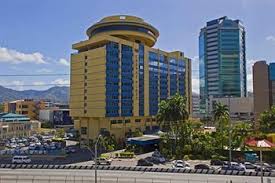The original article can be found in: Trinidad Newsday By MIRANDA LA ROSE
ONCOLOGIST Dr Dylan Narinesingh has called for a national policy on screening for the early stages of prostate, breast, cervical and colon cancers saying that it would save lives and reduce the cost of treatment and palliative care.
Narinesingh, head of the Oncology Unit of the San Fernando General Hospital also called for the establishment of hospices for cancer patients in central and south Trinidad. The two in operation — Vitas House and St Vincent de Paul — are found in north Trinidad.
The old Caura Hospital, he suggested should be looked at as a site for a possible hospice.
Addressing the opening of the TT Registered Nursing Association organised Oncology Nursing Conference on Friday at Capital Plaza, Port-of-Spain, Narinesingh said it was difficult for relatives of cancer patients in south Trinidad to travel to Port-of-Spain to visit those receiving palliative care.
On the issue of screening, he said, “At present, we have no national policy mandating screening for breast, cervical, colon and prostate cancers.”
“The majority of patients we see,” he said, “are stage two and stage three patients for a disease that can be screened and cured in the early stages.”
Breast cancer among women, and prostate among men, for which there was potential for screening, he said were leading causes of death in TT.
“What we have,” he said, “is different regions following different practices, and different physicians following different practices.”Cancer statistics covering 1997 to 2006, he said indicate that among men in the 25 to 59 age group the cancers that affect them the most were prostate, colorectal, and bronchus/lung cancer. Prostate, lung and colorectal affect the male in the 60 to 74 age group.
In female, the cancers found were mainly breast, cervical and colorectal among the 25 to 59 age group. In the 60 to 74 age group, breast, colorectal, uterine and uterine cervical cancers were dominant.
The three leading causes of death by cancer for women, and the two leading causes for men, he said, could be screened.
“With lung cancer we can modify our lifestyle in order to decrease the incidence,” he said.
On the issue of costs, he said that between 2009 to 2012 the South West Regional Health Authority (SWRHA) spent about $11 million to treat 86 women who were at stages two and three of cervical cancer. The $11 million excluded palliative care.
A total of $4.1 million was spent for surgery, and $7 million for chemo-radiation for the more advanced cervical cancer patients.
In a survey done in the South West region, he said the SWRHA found that of the women population only eight percent had done pap smears over a four-year period. “That is two percent a year,” he said.
The local family planning association, he noted offers a pap smear for just over $100.
“We need to have screening policies. That would save life and save money,” he said.














